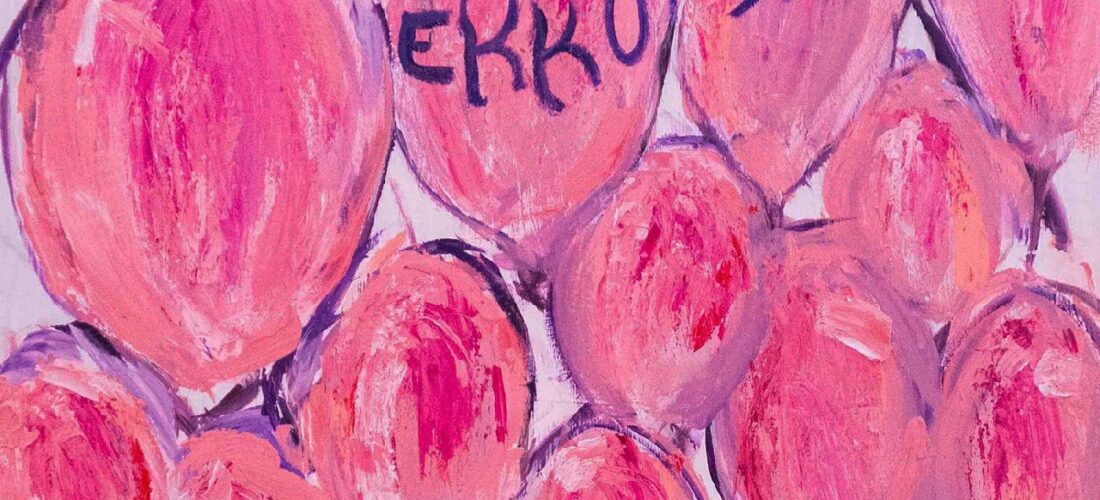Before moving the tassel on his graduation cap from right to left, Liam Hughes started a punk band with his best friend, Jael Holzman. For Hughes, the group doubled as a graduate thesis and a sneaky way to access American University’s recording studio. For Holzman, it was an opportunity to vent. She sang openly about her experiences as a trans woman, and those lyrics felt like a beacon for incoming band members Miri Tyler and Guinevere Tully. After releasing a 2022 EP under the name Ekko Astral, the Washington, D.C., punk outfit expanded into a five-piece with more on the line than just a framed degree: Ekko Astral’s community-building efforts in the local scene transformed them into a sounding board for DIY fans who felt seen.
If Ekko Astral sound brash and impulsive, there’s a good reason: When she’s not behind the mic, Holzman works as an energy and climate reporter, staring down headlines like “The Flooding Will Come No Matter What” even as her rights are increasingly being stripped away. Words spew out of her mouth as though the concept of a filter were laughable. But the band isn’t as reckless as its songs suggest. They quite literally sat down to brainstorm ways that their debut album, pink balloons, might foster a better future. What Ekko Astral produced was a collection of experimental punk and noise-rock songs that weld together two ideas: We’ve got to stop softening our opinions just to minimize others’ discomfort, and we’ve got to start having fun again. Ekko Astral apply those tenets wholesale to dinner-spoiling conversation subjects—the pain of aging, murder and death, the wretched anxiety of being terminally online—with beatific results.
pink balloons’ noise-punk barrage hits like a stray elbow in the mascara moshpit. Ekko Astral smear raw punk, distorted pop hooks, and experimental noise like they’re wiping dirt on their lids in place of eye shadow. Coursing through them is the distinct charisma of D.C. bands past: the chaotic unpredictability of Black Eyes, the palpable urgency of Fugazi, the commanding vocal control of Priests. Opener “head empty blues” is abrasive and unrelenting, stacking Tully’s thick bassline atop Tyler’s racing drums and the stabbing guitars of Hughes and Sam Elmore. There’s barely a second to catch your breath before “baethoven” begins, its ominous organ whirring behind a post-punk rhythm that catches fire the way a Gilla Band song douses itself in gasoline. Ekko Astral cut and push and warp, sneaking in panning vocals and submarine beeps that work thanks to Pure Adult’s Jeremy Snyder, who allows the band to level up with clean, layered production that doesn’t sacrifice their punk spirit.
